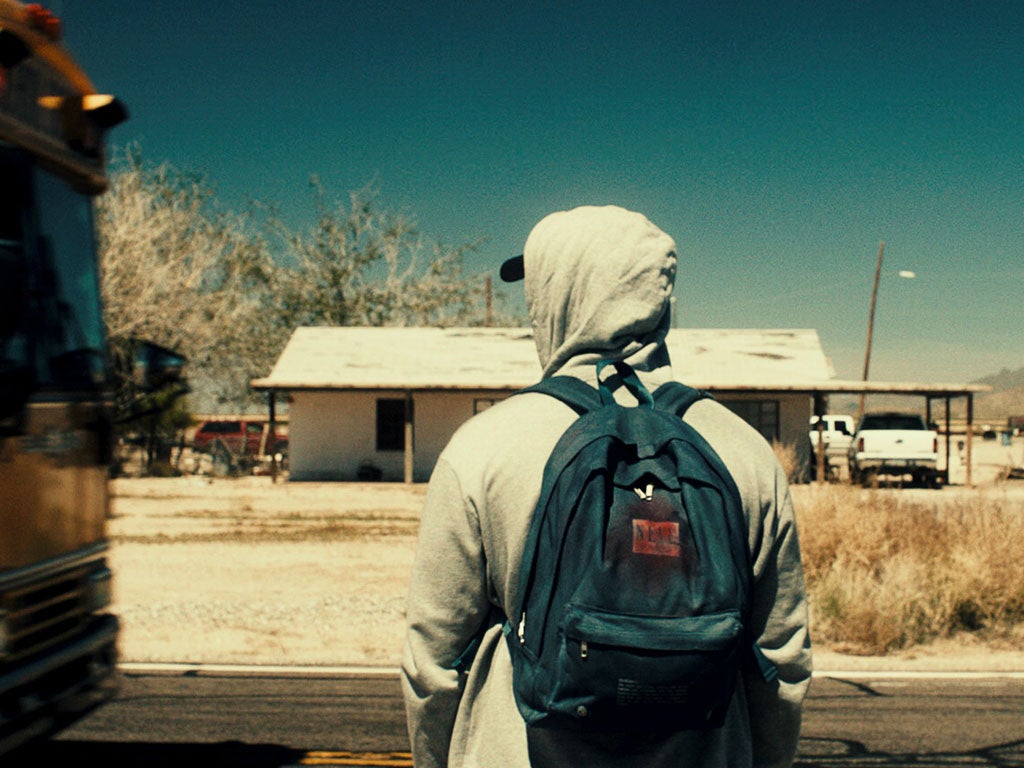
Your support helps us to tell the story
From reproductive rights to climate change to Big Tech, The Independent is on the ground when the story is developing. Whether it's investigating the financials of Elon Musk's pro-Trump PAC or producing our latest documentary, 'The A Word', which shines a light on the American women fighting for reproductive rights, we know how important it is to parse out the facts from the messaging.
At such a critical moment in US history, we need reporters on the ground. Your donation allows us to keep sending journalists to speak to both sides of the story.
The Independent is trusted by Americans across the entire political spectrum. And unlike many other quality news outlets, we choose not to lock Americans out of our reporting and analysis with paywalls. We believe quality journalism should be available to everyone, paid for by those who can afford it.
Your support makes all the difference.It's fitting that Bart Layton's brilliant documentary The Imposter is being released in the same week that Orson Welles' playful and Quixotic final feature F For Fake (1972) is revived. Both are studies in confidence trickery. The Imposter plays like a film noir. Minus the sex, it's the documentary equivalent of one of those lurid Jim Thompson stories in which human nature is exposed at its very basest. One of its fascinations is its structure. The facts here are already relatively familiar.
The New Yorker carried an exhaustive story exploring how Frédéric Bourdin, a 23-year-old French con artist, passed himself off as the missing teenage son of a family from a small Texan town. Layton's trick is to have all his witnesses talking directly to camera. He doesn't use voice-over or commentary but cuts between his many protagonists: Bourdin himself, the close relatives of the missing Nicholas Barclay, the FBI agent and the private investigator.
The problems that face Layton as a film-maker are very similar to those that confronted Bourdin himself when he was first trying to pass himself off as Barclay. He needs to hook his audience early and to stop us questioning a story that even his interviewees acknowledge "is starting to get ridiculous". Like Bourdin, he withholds information from us or gives it us to us in such a selective fashion that we can't see the holes. Disconcertingly, the family members who accept a delinquent French petty criminal as their own kin sound plausible and sincere.
The Imposter is a triumph of editing. Layton brings clarity and a relentless tempo to the film in spite of its contradictions and complexities. He flirts with film noir conventions as he investigates what might really have happened to Barclay. The film also works as a case study of a con artist desperate for our pity. "For as long as I can remember, I've wanted to be someone else," Bourdin laments. "Nobody ever gave a damn about me."
F For Fake is in an altogether more playful register but makes similar points about the infinite human capacity for deception – and the extreme credulity of so-called experts. Welles signals at the outset that he's a thoroughly unreliable narrator. The provenance of the film is hard to ascertain. Welles commandeered the footage from François Reichenbach's TV documentary about the art forger Elmyr de Hory and his biographer Clifford Irving and then proceeded to add to it.
Irving himself is a forger: he wrote a fake autobiography of Howard Hughes. "If Hughes couldn't or wouldn't speak, someone could do the speaking for him," Welles approvingly notes. De Hory, a charming and mischievous figure, has obvious similarities with Frédéric Bourdin. His tragedy is that he has no personal vision. For all the brilliance of his fake Matisses and Modiglianis, he still feels like a ghost.
Join our commenting forum
Join thought-provoking conversations, follow other Independent readers and see their replies
Comments